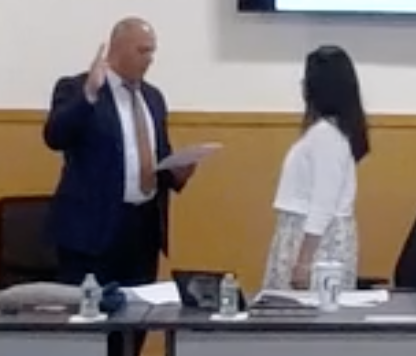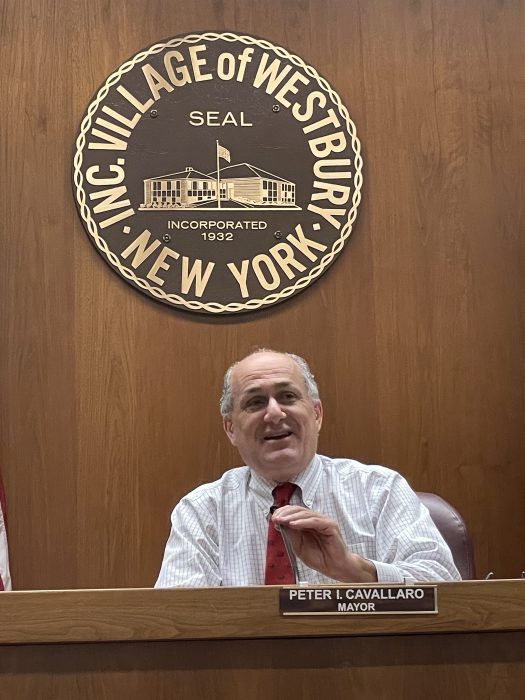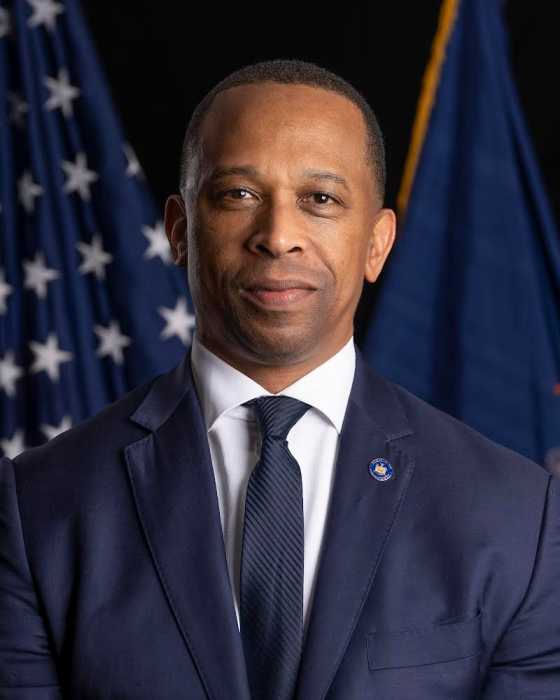Though the Nassau County legislature officially passed a $3 billion unbalanced budget last week, there’s still quite a bit of work to be done as the county tries to find ways to avoid adopting the controversial public safety fee that was expected to make up $64 million in new revenue. The Nassau County Interim Finance Authority says the board needs to cut $80 to $100 million to balance the budget.
 At the meeting on Monday, Oct. 31, the legislature held off on approving the $105 public safety fee, a surcharge added to all parking and traffic tickets that drew harsh criticism from members of the public and Democratic Minority. Presiding Officer Norma Gonsalves said several majority members had also asked that no action be taken on the fee until “every avenue be exhausted.”
At the meeting on Monday, Oct. 31, the legislature held off on approving the $105 public safety fee, a surcharge added to all parking and traffic tickets that drew harsh criticism from members of the public and Democratic Minority. Presiding Officer Norma Gonsalves said several majority members had also asked that no action be taken on the fee until “every avenue be exhausted.”
Among those avenues, she said, was hearing from Comptroller George Maragos, who said he had a detailed plan to achieve budgetary balance with no fee increases.
“In light of this idea, the majority will hold off on approving any fees at this time,” Gonsalves said, adding they would look at alternatives to the public safety fee. “However, we are required to adopt a budget. We will do so today with the knowledge that the revenue anticipated from the proposed fees will need to be addressed in the next several days. A balanced budget will be achieved, but it’s better to do that with a little extra time to get it right.”
While not unveiling a comprehensive plan at the meeting, Maragos said if the budget was cut by 3.8 percent, or 82.6 million, the county would not need to add fees. To do that, he proposed having all county agencies, departments and elected officials revert back to their 2016 adopted budgets, and then shave them down by about 2.5 percent.
“The budget needs to better align priorities and challenge every department to economize, before asking residents to pay more. All departments and elected offices should be tasked to reduce budgets without reducing programs and services,” Maragos said.
However, several legislatures pointed out there were many mandated increases that the legislature had no power over, and that they only had control over about 30 percent of the budget. Legislator Rich Nicolello also expressed extreme skepticism that Maragos’ proposals could be cut into place without any layoffs.
“The administration is saying this budget has been cut to the bone and the employees are down to record levels, and if we make any cuts, we’ll be making layoffs,” Nicolello said. “But you’re saying we can save all this money. If you can do that, show us in detail.”
Legislative Minority Leader Kevan Abrahams said the majority was “stalling” until after Election Day and that they put transparency to the wayside.
“If we were truly trying to balance the budget, we should have come up with solutions to try to do that in the time frame. That was not done,” Abrahams said. “The majority is going to pass a budget that is going to be inherently flawed from day one.”
Alec Slatky, legislative and community relations representative at AAA Northeast, wanted the legislature to commit to not bringing back the fee that he said was not only bad public policy, but also potentially illegal.
“There’s so many reasons why this is an ill-conceived policy. When you call it a ‘fee,’ that’s a payment for a special service,” Slatky said. “But if this goes to fund general government services, such as the police department, it’s not a fee, it’s a tax. The sooner we can get rid of the fee as an idea, the better.”
Resident Diane Madden said she didn’t feel at all comforted that the public safety fee was not being voted on, but still being kept as an option.
“It sounds as if it’s just getting tabled, that is not the solution,” Madden said. “You owe it to the tax-paying public, to give them a reason to believe you will not be voting on that ever by removing it from the agenda entirely.”
Public safety fees are anticipated to generate close to $64 million, which is slated to go towards new police personnel. But Abrahams said that will only cost the county $8 million.
“Where is the other $56 [million] going? That’s why this becomes illegal, because it’s going towards balancing general administration costs because of mismanagement in this county,” Abrahams said.
Several other residents also decried the proposed $600 annual fee for dog groomer licenses.
“This license will put a lot of small dog grooming shops out of business,” said Deborah Luma, a Suffolk County resident who has owned her shop in Nassau County for 23 years. “For me to have to pay $600 every year to have a license to groom….will just cause me to close my doors and leave Nassau County.”
The budget was adopted 11 to 6, and all changes must be adopted before the end of the year.

































